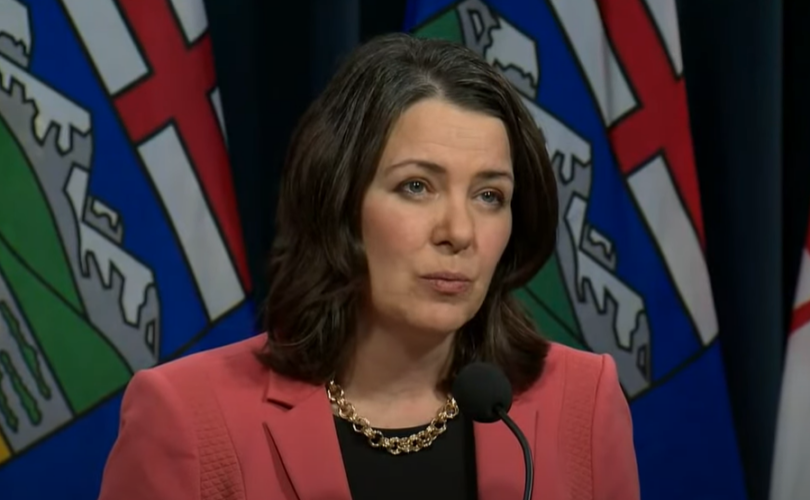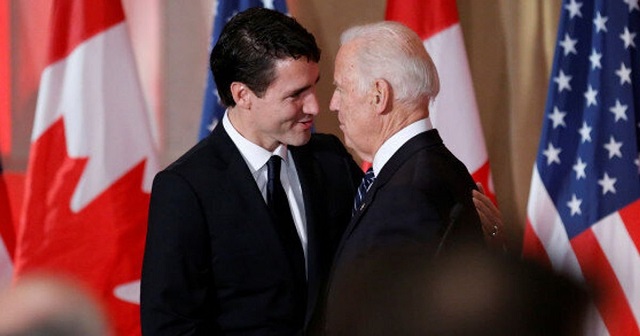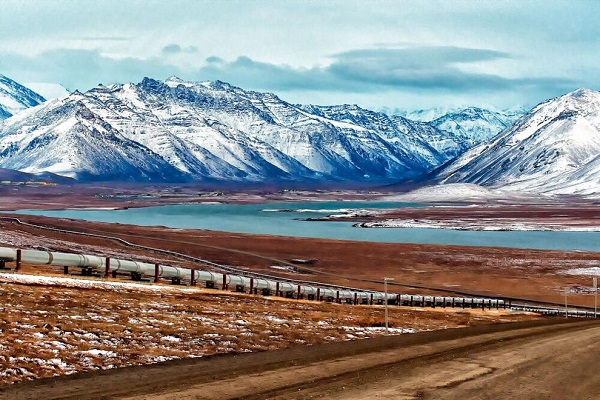Alberta
Alberta moves to protect Edmonton park from Trudeau government’s ‘diversity’ plan

From LifeSiteNews
If Trudeau’s National Urban Park Initiative is implemented, Alberta could see its parks, including Edmonton’s River Valley, hijacked by the federal government in the name of ‘sustainability, conservation, equity, diversity, inclusion, and reconciliation.’
Edmonton is working to protect its River Valley from the Trudeau government’s “diversity” park plan.
On April 15, Alberta Legislature passed MLA Brandon Lunty’s private members’ Bill 204 to protect the Edmonton River Valley from Prime Minister Justin Trudeau’s National Urban Park Initiative which would give the federal government power over provincial parks to enforce a variety of quotas related to the “climate” and “diversity.”
“Albertans elected our United Conservative government with a majority mandate to, among other things, protect families and communities from federal overreach and intrusion. That’s exactly what this bill accomplishes,” Lunty said in a press release.
Bill 204, titled the Municipal Government (National Urban Parks) Amendment Act, is a response to the National Urban Park Initiative which would give the Trudeau government jurisdiction over Alberta’s provincial parks.
The Trudeau government’s plan promises to “provide long-lasting benefits to the urban area” by using “sustainability, conservation, equity, diversity, inclusion, and reconciliation.”
If the program is approved, the Edmonton River Valley could be “fully owned by the Federal Government,” which will use the space to advance their values, including addressing the impacts of “climate change” and creating spaces where “diversity is welcomed.”
The plan also promises that equity will be “intentionally advanced” while “respecting indigenous rights” through “reconciliation.”
However, many Edmonton citizens were concerned with the Urban Park Initiative and met with their MLAs to discuss the issue.
Edmonton citizen Sheila Phimester worked with MLA Jackie Lovely to create a petition to prevent the River Valley from becoming federally owned. The petition has received over 5,000 signatures.
“Instead of Edmontonians making decisions about what happens in the park, Ottawa would be making the decisions,” the petition warned.
“Oh, and because it’s the federal government, their ‘priorities’ for these parks are ‘healthier communities’, ‘climate resilience’, ‘reconciliation’, ‘equity’, ‘diversity’, and ‘inclusion,’” it continued.
Already, Trudeau has attempted to assert power over Alberta’s industry by placing “climate” restrictions on their oil and gas production in an attempt to force net-zero regulations on all Canadian provinces, including on electricity generation, by as early as 2035.
However, Alberta Premier Danielle Smith has repeatedly vowed to protect the province from Trudeau’s radical “net zero” push.
In December, Alberta Premier Danielle Smith blasted Trudeau’s Environment Minister Steven Guilbeault’s plan to slash oil and gas emissions by 35 percent to 38 percent below 2019 levels as “unrealistic” and “unconstitutional.”
Trudeau’s current environmental goals are in lockstep with the United Nations’ “2030 Agenda for Sustainable Development” and include phasing out coal-fired power plants, reducing fertilizer usage, and curbing natural gas use over the coming decades.
The reduction and eventual elimination of the use of so-called “fossil fuels” and a transition to unreliable “green” energy has also been pushed by the World Economic Forum (WEF) – the globalist group behind the socialist “Great Reset” agenda – an organization in which Trudeau and some of his cabinet are involved.
In November, after announcing she had “enough” of Trudeau’s extreme environmental rules, Smith said her province had no choice but to assert control over its electricity grid to combat federal overreach by enacting its Sovereignty Act. The Sovereignty Act serves to shield Albertans from future power blackouts due to federal government overreach.
Unlike most provinces in Canada, Alberta’s electricity industry is nearly fully deregulated. However, the government still has the ability to take control of it at a moment’s notice.
Alberta
Alberta government should eliminate corporate welfare to generate benefits for Albertans

From the Fraser Institute
By Spencer Gudewill and Tegan Hill
Last November, Premier Danielle Smith announced that her government will give up to $1.8 billion in subsidies to Dow Chemicals, which plans to expand a petrochemical project northeast of Edmonton. In other words, $1.8 billion in corporate welfare.
And this is just one example of corporate welfare paid for by Albertans.
According to a recent study published by the Fraser Institute, from 2007 to 2021, the latest year of available data, the Alberta government spent $31.0 billion (inflation-adjusted) on subsidies (a.k.a. corporate welfare) to select firms and businesses, purportedly to help Albertans. And this number excludes other forms of government handouts such as loan guarantees, direct investment and regulatory or tax privileges for particular firms and industries. So the total cost of corporate welfare in Alberta is likely much higher.
Why should Albertans care?
First off, there’s little evidence that corporate welfare generates widespread economic growth or jobs. In fact, evidence suggests the contrary—that subsidies result in a net loss to the economy by shifting resources to less productive sectors or locations (what economists call the “substitution effect”) and/or by keeping businesses alive that are otherwise economically unviable (i.e. “zombie companies”). This misallocation of resources leads to a less efficient, less productive and less prosperous Alberta.
And there are other costs to corporate welfare.
For example, between 2007 and 2019 (the latest year of pre-COVID data), every year on average the Alberta government spent 35 cents (out of every dollar of business income tax revenue it collected) on corporate welfare. Given that workers bear the burden of more than half of any business income tax indirectly through lower wages, if the government reduced business income taxes rather than spend money on corporate welfare, workers could benefit.
Moreover, Premier Smith failed in last month’s provincial budget to provide promised personal income tax relief and create a lower tax bracket for incomes below $60,000 to provide $760 in annual savings for Albertans (on average). But in 2019, after adjusting for inflation, the Alberta government spent $2.4 billion on corporate welfare—equivalent to $1,034 per tax filer. Clearly, instead of subsidizing select businesses, the Smith government could have kept its promise to lower personal income taxes.
Finally, there’s the Heritage Fund, which the Alberta government created almost 50 years ago to save a share of the province’s resource wealth for the future.
In her 2024 budget, Premier Smith earmarked $2.0 billion for the Heritage Fund this fiscal year—almost the exact amount spent on corporate welfare each year (on average) between 2007 and 2019. Put another way, the Alberta government could save twice as much in the Heritage Fund in 2024/25 if it ended corporate welfare, which would help Premier Smith keep her promise to build up the Heritage Fund to between $250 billion and $400 billion by 2050.
By eliminating corporate welfare, the Smith government can create fiscal room to reduce personal and business income taxes, or save more in the Heritage Fund. Any of these options will benefit Albertans far more than wasteful billion-dollar subsidies to favoured firms.
Authors:
Alberta
Official statement from Premier Danielle Smith and Energy Minister Brian Jean on the start-up of the Trans Mountain Pipeline

-

 Opinion19 hours ago
Opinion19 hours agoClimate Murder? Media Picks Up Novel Legal Theory Suggesting Big Oil Is Homicidal
-

 Bruce Dowbiggin1 day ago
Bruce Dowbiggin1 day agoIt Gets Late Early These Days: Time To Bounce Biden & Trudeau?
-

 Environment2 days ago
Environment2 days agoClimate Alarmists Want To Fight The Sun. What Could Possibly Go Wrong?
-

 Addictions1 day ago
Addictions1 day agoCity of Toronto asks Trudeau gov’t to decriminalize hard drugs despite policy’s failure in BC
-

 COVID-192 days ago
COVID-192 days agoCanada’s COVID vaccine injury program has paid out just 6% of claims so far
-

 Business1 day ago
Business1 day agoWhen politicians gamble, taxpayers lose
-

 International2 days ago
International2 days agoU.S. birth rate hit record low last year, signaling surge in childlessness
-

 Energy15 hours ago
Energy15 hours agoHouses passes bill to protect domestic oil production, protect Iñupiat community








